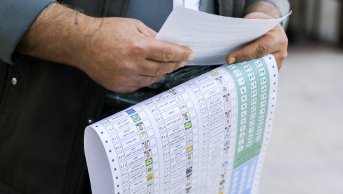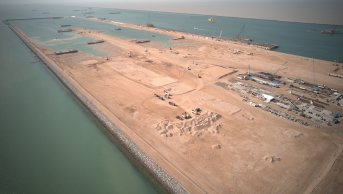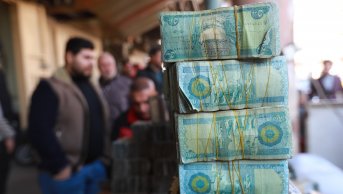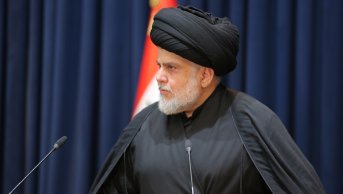Process for the Government Establishment in Iraq
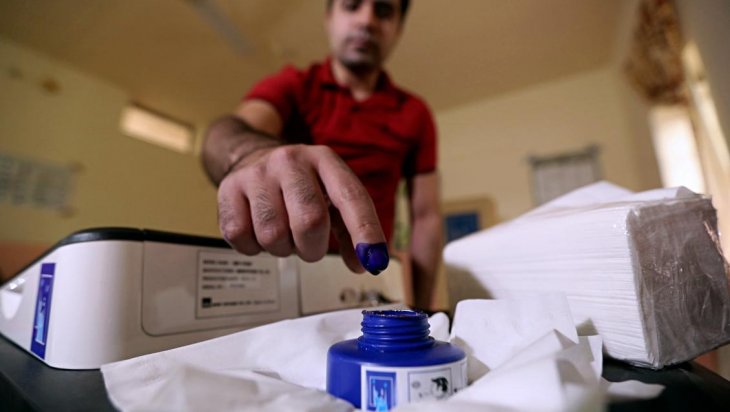
Iraq Parliamentary elections were held on 12 May 2018. In the elections where there were more than 24 million voters, the voter turnout was 44.5%. As a result of the electronic selection system, election results were announced in the days following the election. Another outcome of the electronic selection system is that the results were manipulated in the electronical field. Nevertheless, the election results were announced piece by piece until May 15. To overcome this situation, the Iraqi Parliament was convened on May 28. According to the decision taken at this session, 10 percent of the votes will be counted as random. If the results are different from the electronic results, all of them will be counted by hand. However, there are two different views upon the parliamentary decision. The first of these is that the parliamentary term lasts until 1 July 2018. Therefore, parliament can make this decision. The other view is that parliament can only monitor the activities of the Iraqi Independent High Electoral Commission (IHEC) and a decision regarding the election results can only be given by the Federal Supreme Court of Iraq.
The result of the parliamentary elections was announced under these conditions in the following days. IHEC announced the results by organizing different meetings. It benefited from the electronic vote counting when explaining the election results. This method, which allegedly led to electoral fraud, was protested by demonstrations organized in the provinces, especially in Kirkuk. The Iraqi Parliament, on the other hand, wanted 10 percent of the votes to be counted by hand and compared with the electronic results. If there is a big difference between the results, the entire ballot boxes will be counted by hand. In the meantime, in Kirkuk, where large-scale election frauds are claimed to have been made, all boxes that are considered as suspicious will be counted by hand. Despite all these developments, the post-election calendar in Iraq is progressing. Below are the constitutional articles that regulate Iraq’s post-election period.
Article 54:
The President shall convene the Parliament with a statement to be published within 15 days following the date of approval of the general election results. The first parliamentary session takes place under the chairmanship of the oldest member, and in the given session the President of the Parliament and two deputies to him shall be elected. The call period to the meeting mentioned above cannot be extended.
Article 55:
Parliament elects a president and two deputies in the first session. Secret and direct voting are held and candidates receiving the majority of qualifications are elected.
The first session of the parliament referred to in Paragraph 54 shall be held within 15 days after the final results announced by IHEC are approved by the Federal Supreme Court of Iraq. The election procedure for the president of the parliament and the two deputies is arranged in the following article.
Article 70:
1. The Parliament elects the President with a majority of 2/3 of its members among its members.
2. If none of the candidates receives the necessary number of votes to form the majority, a second round of elections shall be held between the two candidates with the most votes in the first round. The candidate who receives the most votes on this round is declared the President.
Article 70 regulates the method of electing the president. If no presidential candidates receive the qualified majority, two candidates with the highest number of votes in the first round compete and who receives the most votes becomes the candidate.
Article 72:
2. b) The President shall remain in office until elections are held for the new Parliament and Parliament is convened. However, Parliament must elect the new President within 30 days following the first session.
Article 72 envisages the election of the president in the new period of parliament within 30 days of the first session. The election of the president with the most votes in the last round is pushing for the negotiation of different political groups even if the time limit for the presidential election complicates the election.
Article 76:
1. Within 15 days following the date on which the President of the Republic is elected, the President shall appoint the candidate of the political party with the largest number of seats to form the Council of Ministers.
2. The Prime Minister candidate shall determine the members of the Cabinet within the next 30 days starting from the date on which this assignment is made.
With the inauguration of the new president, the office of the president elected in the previous period and fulfilling the new regulatory mandate expires. The president, who takes office, appoints the head of the parliamentary group with the most members for the establishment of the new government. The President must fulfill this duty within 15 days. The appointed prime minister candidate should determine the cabinet members and obtain a vote of confidence in the parliament within 30 days. Otherwise, the president will continue to appoint different people until the government is formed. However, the president does not have to appoint the chairman of the group with the second most votes in parliament after the first attempt to form a government. The president identifies and appoints the people who can establish the government in his opinion.
As you can see, the election calendar takes about two months, even if all elections and appointments are made within the prescribed dates. For the quick conclusion of the government establishment period, the largest group in parliament or the groups that the largest group allies must be in a strength to receive a vote of confidence. Therefore, although the process to be experienced in Iraq is regulated by the constitution and laws, negotiations and bargaining between political groups will be decisive for the process to prolong or not.


